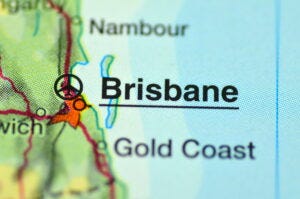Content Spotlight
Podcast: MilliporeSigma says education vital to creating unbreakable chain for sustainability
MilliporeSigma discusses the importance of people, education, and the benefits of embracing discomfort to bolster sustainability efforts.

Funded by the Queensland Government, Vaxass has opened a facility in Brisbane, Australia to support the production of its high-density microarray patches.
Vaxxas, a clinical-stage biotechnology firm developing vaccine platform technology, has opened a 60,000 square-foot facility in Brisbane, Queensland.
The facility includes two GMP aseptic cleanrooms, a device assembly cleanroom, medical device manufacturing space, as well as laboratories and office space. The plant has 130 employees and expects to hire an additional 70 members of staff over the next three to five years.

DepositPhotos/DarioSz
The facility will support the scale-up of its operations to manufacture high-density microarray patches (HD-MAP) vaccines for future late-stage clinical trials and commercial products. Vaxxas’ HD-MAP platform works by using a high-density array of projections that are invisible to the human eye and it is applied to the skin as a patch. Once applied to the skin, the patch delivers the vaccine to the patients’ immune cells below the skin surface.
The firm said this method can improve the immune response of the vaccine and because the company uses dry-coating technology to apply an active and stable vaccine onto the projections, there is the potential to remove the requirement for cold chain storage and transportation.
“The Vaxxas Biomedical Facility is the critical link that enables Vaxxas for aseptic manufacture of clinical materials for later stage clinical studies (Phase II and Phase III) and will house the automated aseptic manufacturing line for production of the first commercial products. The facility will be capable of producing tens of millions of vaccine coated HD-MAPs [per] year,” David Hoey, CEO of Vaxass told BioProcess Insider.
In addition to the funding from the Queensland Government, Vaxxas also received investment from the Australian Government’s Modern Manufacturing Initiative to help the implementation of manufacturing and production infrastructure.
“The core technology originated at the University of Queensland, with the company being formed around the Australian scientific team,” Hoey said.
“Growth of the Australian operations has been accelerated by support under the Australian Government’s R&D tax incentive scheme and other programs that foster investment in manufacturing infrastructure. Vaxxas has also been able to access Australia’s streamlined Phase I clinical trial systems to conduct studies involving more than 500 participants. Vaxxas’ commercial operations are based in Boston, Massachusetts.”
The company has six clinical programs underway with various vaccines and collaborators. Its HD-MAP is being evaluated in Phase I human clinical trials for seasonal influenza and COVID-19. Moreover, the firm is planning a clinical evaluation for a pandemic influenza vaccine under a contract with the US Biomedical Advanced Research and Development Authority (BARDA).
You May Also Like